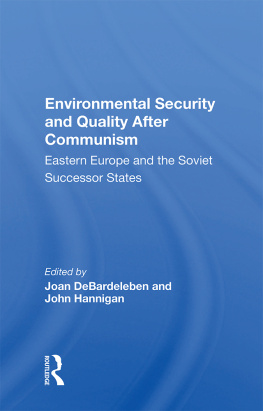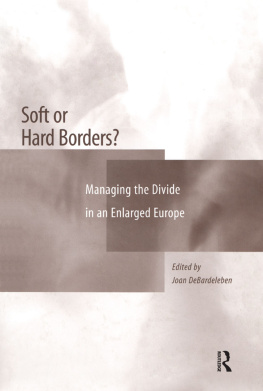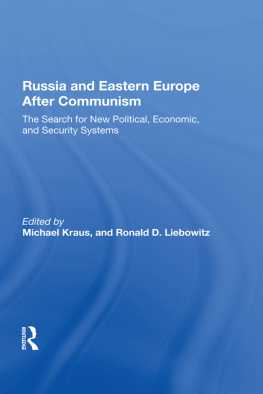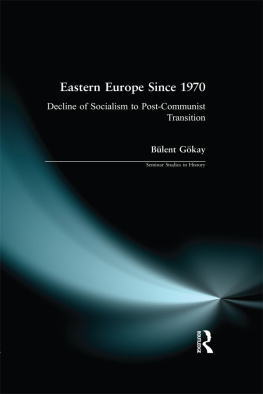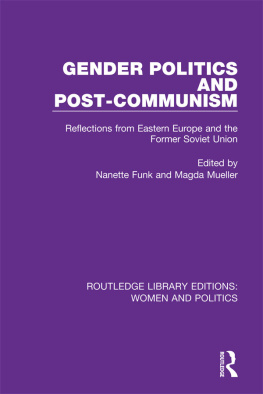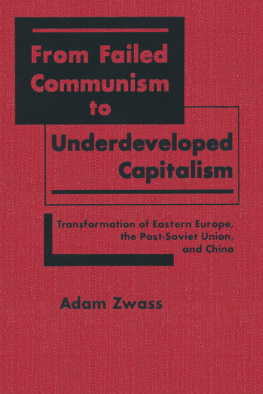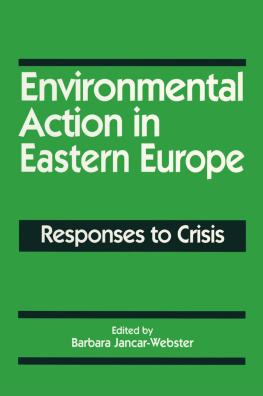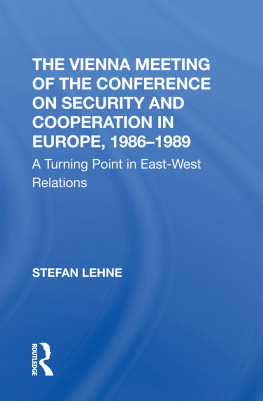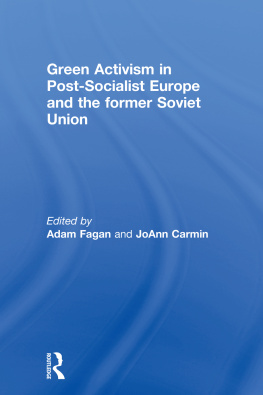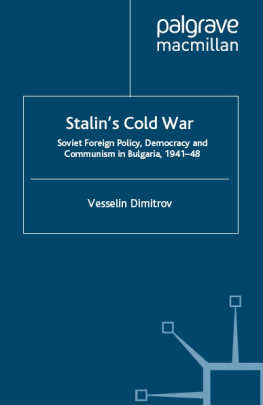First published 1995 by Westview Press, Inc.
Published 2018 by Routledge
52 Vanderbilt Avenue, New York, NY 10017
2 Park Square, Milton Park, Abingdon, Oxon OX14 4RN
Routledge is an imprint of the Taylor & Francis Group, an informa business
Copyright 1995 Taylor & Francis
All rights reserved. No part of this book may be reprinted or reproduced or utilised in any form or by any electronic, mechanical, or other means, now known or hereafter invented, including photocopying and recording, or in any information storage or retrieval system, without permission in writing from the publishers.
Notice:
Product or corporate names may be trademarks or registered trademarks, and are used only for identification and explanation without intent to infringe.
A CIP catalog record is available for this book from the Library of Congress.
ISBN 13: 978-0-367-00467-5 (hbk)
Joan DeBardeleben
Long before the collapse of communism, both Soviet environmentalists and Western observers warned that environmental problems in Eastern Europe and the Soviet Union had reached crisis proportions. Explanations for the situation, however, focused on deficiencies of the Soviet model rather than on common factors affecting both East and West. Finally, political features of the system were noted. Especially important were censorship of information about environmental quality, unresponsiveness to local environmental hazards, and restrictions on the formation of independent environmental groups and on independent critiques by experts.
As in many other spheres, observers expected a brighter future following the collapse of the communist system. In this view, market incentives would encourage efficient use of natural resources; including energy, and this in turn would reduce pollution levels. Decentralization of political power would allow local authorities to respond to immediate environmental problems. Liberalization of the media and formation of independent environmental organizations would make the government and industry accountable to the public.
To some extent, the outburst of glasnost in the mid to late 1980s, particularly after the Chernobyl nuclear accident of May 1986, seemed to support these expectations. Glasnost brought increased public awareness of the dire state of the environment, and the Chernobyl accident raised the alarm all over the world about the hazards of environmental neglect in specific countries. Particularly in the more industrialized countries of Eastern Europe and regions of the Soviet Union, citizens began to organize themselves on the local level to demand improvements and, in some cases, It appeared that an environmental awakening was at the doorstep, that local control would bring greater sensitivity to environmental issues, and that the public was attuned to the problem as a priority concern. The collapse of the USSR in late 1991 and the economic downturn which gripped the region interrupted the momentum, and the tide again seemed to turn against the environment. As in so many spheres of life, the promises of the post-communist future seem mere chimeras of past dreams. Just as the end of the Cold War has not brought the hoped-for stability and security to Europe, so the end of communism has not produced reordering of public priorities and redirection of public resources to restore some semblance of peace with nature.
Gorbachev's new thinking in foreign policy had conceived international security in largely non-military terms, and included a recognition of the potentially destabilizing effects of international isolation, global environmental degradation, and the sapping of economic well-being to support the arms race. In developing these ideas, Gorbachev was building on the work of Soviet scientists and philosophers who, already in the 1970s, were drawing attention of scholars and the elite to the reality of "global problems," among which environmental degradation held a primary position. While these scholars were not able to issue an explicit critique of the Soviet model of development and the way in which it contributed to global environmental insecurity, they were able to legitimize concern with domestic environmental problems by linking it to a broader understanding of global issues. They grounded their concern with "global problems" in Marxist-Leninist understandings of Soviet internationalism and the progressive nature of the Soviet system in assuring the long-term well-being of humanity.
Gorbachev's new thinking in many ways set the tone for international relations in the late 1980s and 1990s. Politicians in both East and West expected that the end of the Cold War would bring an economic "peace dividend" which would free resources to address other pressing, but neglected, social problems, including environmental deterioration. The long-term effect would be both a local and global improvement in the quality of life and standard of living.
In embracing these hopes, politicians and the public were to a large extent victims of the exaggerations and misunderstandings generated during the Cold War. In the West, prevalent understandings of the Soviet system were unduly simplistic and failed to recognize both the contributions and deficiencies of that system. Since the dominant Western view attributed the failings of the system almost completely to the structure of communist power, the collapse of that system was expected to bring a positive reversal. If communism had repressed national self-assertion, then post-communism should bring a blossoming of national self-determination, in the Wilsonian sense. If communism had ignored consumer goods and agriculture, then post-communism should allow markets to respond effectively to consumer demands and free private initiative to increase production levels. If communism had set in place a centralized system of incentives and priorities largely hostile to the environment, then post-communism should see a revived capability of these liberated nations to improve the quality of life. Many leaders and citizens in the post-communist states adhered to these same illusions, as they engaged in a wholesale rejection of the Soviet past and an indiscriminating attempt to mimic Western values. In reality, of course, none of these optimistic outcomes has come to pass, at least not yet. Communism not only repressed national self-assertion, but also national hostilities. It not only imposed central priorities, but also assured enforcement of certain public values. It not only repressed consumer demands, but also organized a common economic space. With the collapse of communism some of the old security threats waned, but new ones quickly emerged. Nuclear proliferation, armed national conflicts, economic disorder, refugee flows, and localism have replaced the hazards of a spiralling U.S.-Soviet arms race.

